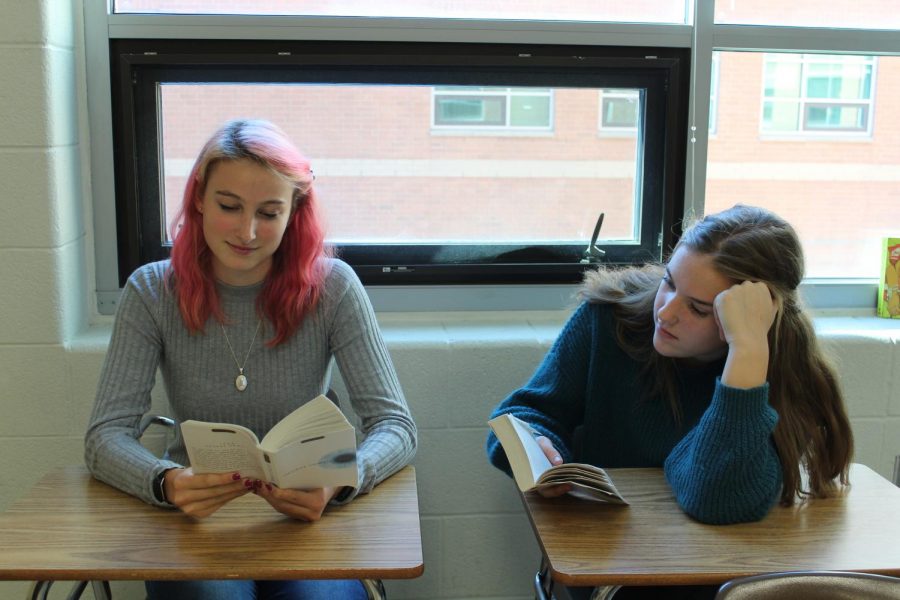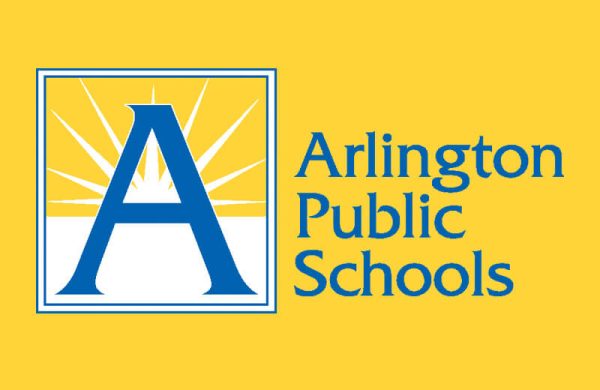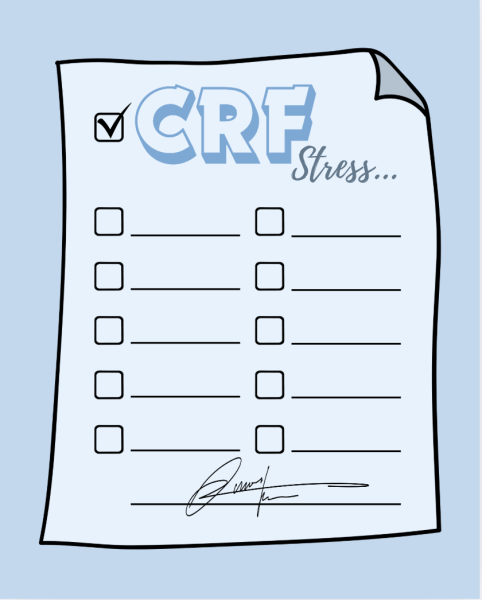Busting myths about dyslexia
When you think of October, you probably think of Halloween, fall, or you might already be counting down the days until Thanksgiving break, but October is also Dyslexia Awareness Month. Dyslexia is the most common learning disability, affecting approximately 15 to 20 percent of the total population according to the International Dyslexia Association, yet many people are still unaware of it.
“Dyslexia is commonly referred to as a language-based disorder in which an individual struggles to learn to read at a pace appropriate to their peers and level of education,” school psychologist Dr. James Siddall said. “This can look many different ways. In general, it is a disability which can impact an individual’s ability to read.”
In high school, dyslexia can affect students in a variety of ways. According to Mayo Clinic, students may have difficulty learning a foreign language or with math problems or struggle with rote memorization. Often they read or write more slowly and have difficulty with spelling. As a result, students with dyslexia may try to avoid tasks involving reading and writing.
“I’m always self conscious when I have to spell things in front of people… because I know I’m spelling them wrong,” an anonymous junior said. “It’s really embarrassing because I’m sixteen, I should know how to spell these things.”
Dyslexia can cause anxiety and embarrassment when students have to read aloud or spell something in front of others. Students can find it frustrating if others do not understand dyslexia.
“People make fun of it. They call you names. They say, ‘you’re in high school, you’re supposed to be able to spell this,’ and there is just a lot of shame around it,” an anonymous sophomore said. “People make a bigger deal out of it than it really should be because it’s actually pretty common.”
School could be particularly difficult for students with dyslexia before they were diagnosed and were receiving help because they did not understand why they were struggling.
“I remember always being in the lowest reading group and I would go home and cry because I didn’t get it and I didn’t get why I wasn’t good at it,” the junior said. “I didn’t understand why I couldn’t be with all the kids who were reading the big books, so it was hard.”
Students with dyslexia often receive accommodations through an Individualized Education Plan (IEP) or a 504 plan to help support them in school. Some students have a reader on tests or take tests in a quieter room so they can focus on reading. Extra time on tests, quizzes and assignments is one of the most common accommodations for students with dyslexia and allows them to have enough time to complete a task.
“I’ve always needed… extra time on assignments, tests, and quizzes because it takes me a long time to do things,” the junior said. “I can do them, it just takes me longer than a normal person.”
Assistive technology is another tool students might use to help support them with their reading and writing skills. Read aloud, text-to-speech and speech-to-text are some of the tools students can use. Some students may be concerned that accommodations such as assistive technology provide students with an unfair advantage, however, assistive technology only helps students complete tasks in a way that works for them.
“When students have disabilities, they have barriers that other students don’t,” Assistive technology specialist Marbea Tammaro said. “Those barriers get in the way of their ability to participate in school and access the curriculum. Assistive technology levels the playing field so they have equal access. It’s really a civil right: equal access to the material so they can be students.”
Students who are concerned they might have dyslexia can talk to their teachers and counselor or email the school psychologists, Dr. James Siddall or Ms. Lori Ockerman to discuss their concerns.
“If a student is finding themselves falling behind in their reading level or how fast they are able to read they can go to their counselor or English teacher and say ‘Look, I’m really struggling. I can’t read as fast as my classmates’ or ‘I’m only picking up some of this stuff and it’s very frustrating,” English teacher Mr. Richard Greene said. “The support systems are there and if a student hasn’t been identified as having a disability then maybe it’s time to do that.”
People with dyslexia are often very successful, however. Some of the most successful people such as Steve Jobs, Richard Branson and Steven Spielberg have dyslexia. In fact, according to LDOnline, 40% of millionaires of dyslexic.
“Math has always been something I’ve been good at and [I’ve been] able to keep going on a pretty intense level,” the junior said. “[I’ve done] well in high school despite having dyslexia. It makes it harder but I’m still doing well.”
Students with dyslexia are often creative and often excel in subjects such as math and science. They can do extremely well in school if they work hard and take the appropriate steps to make sure they are getting help.
“Engage with your teachers directly,” Mr. Greene said. “Make sure they understand when you are struggling. If you are struggling with dyslexia or you are struggling with your reading level, you are not alone, everyone wants to help you succeed. There is no limit to what can be accomplished if a student, parents, a counselor and a teacher are all on the same page.”
Interviewed students said that nobody should be ashamed to have dyslexia. They agreed that students with dyslexia can do well and wanted other students with dyslexia to know that it should not hold them back.
“It doesn’t define you,” the sophomore said. “It’s kind of hard but there are people who can help you. Even though it’s hard, you can get through it. You can look up words and have [a computer] read it to you. Just don’t let [dyslexia] hold you back from doing something that you love.”
Disclaimer: I have dyslexia.













